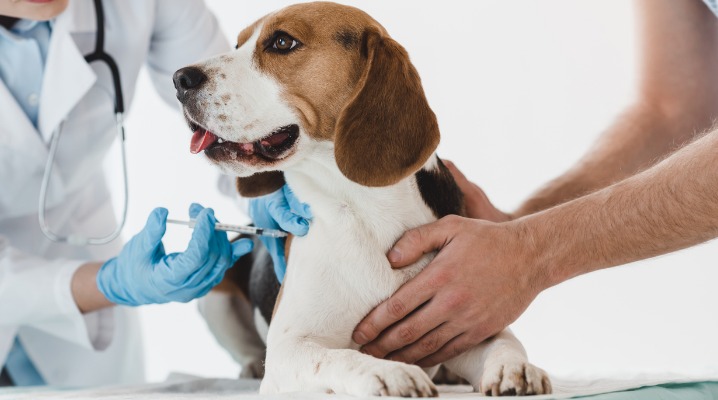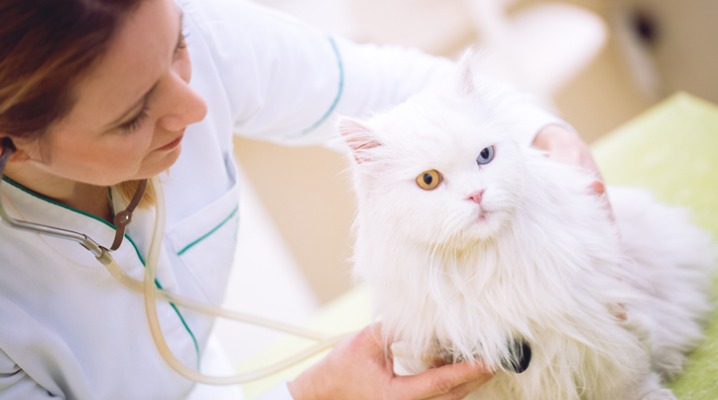
Tempted to Skip Your Pet’s Annual Checkup? Don’t!
When you adopt a dog or cat, one of the first things you’ll do is bring the pet to its new veterinarian for a checkup and preliminary healthcare services. This initial appointment is extremely important to get your pet set up with preventative care and disease protection. But as your pet ages, you may be tempted to skip an appointment here and there, as long as your furry friend is acting normal. Unfortunately, opting out of your vet’s recommended yearly checkup schedule could be a big mistake.
Without proper veterinary care, pets face an increased risk of diseases, and underlying health problems may go unnoticed. Taking your cat or dog to the vet each year throughout its adulthood sets it up for the greatest chance of lifelong health and happiness.
Benefits of yearly checkups

You shouldn’t wait to visit the vet until your pet is showing signs of illness. There are actually many benefits to taking your pet for a checkup each year.
- Preventative care: A major benefit of yearly checkups with a vet is the preventative procedures your pet will have done there. While you can order vitamins and nutritional supplements yourself, a vet will need to administer your pet’s important vaccination boosters, such as rabies. These immunizations are very important for protecting your dog or cat from serious diseases. In some places, you may even be fined or prohibited from traveling or boarding your pet if its vaccination records are not up to date.
- Identify underlying health issues: Since pets can’t communicate with words, it’s often difficult for pet owners to tell when their furry friends are sick. Vets are highly trained professionals, so they are often able to pick up on symptoms and concerning health signs in your pet that you may have missed. During a yearly checkup, your vet will complete a full physical examination of your pet, as well as tests of your pet’s stool or blood. All of these things help vets identify underlying health problems owners are unaware of. Catching underlying problems early is imperative to treating them effectively and setting the pet up for a successful recovery.
- Risks increase with age: Pets age faster than people do, and with age comes an increased risk for a variety of health problems. Therefore, skipping your cat or dog’s yearly checkup is similar to skipping multiple years’ worth of checkups for yourself. Additionally, yearly exams help create a baseline of what is “normal” for your pet. Deviations from this norm that are caught in future years can indicate early signs of diseases that are more common with age.
- Dental work: One more key benefit of yearly veterinary checkups for your pets is dental care. Aside from other health issues, things like periodontal disease are very common in cats and dogs due to neglected dental care. A yearly visit with the vet gives your pet the opportunity to have their teeth cleaned deeply and be examined in case there are problems with the gums or teeth.
Some animals will require even more attention

Of course, you should also remember that if you have a puppy or kitten, or if your pet is entering its senior years, it may require more veterinary attention than a single yearly checkup.
Newborn cats and dogs will require the most frequent veterinary care, largely so they can receive the adequate number of vaccinations to protect them from harmful diseases. Young pets are particularly susceptible to illnesses due to their underdeveloped immune systems, so you should avoid skipping your young cat or dogs’ vet appointments at all costs.
Most kittens and puppies will need a monthly or bi-monthly visit until they reach 16 weeks of age. After that, they may require one of two more visits until they turn one year old so they can get their final vaccination boosters and be checked before their spay or neuter procedure.
As for older pets, vets typically recommend owners bring pets older than seven in for a checkup twice a year. An older pet’s health can deteriorate quickly without warning, so more frequent checkups help to watch for signs of illness and treat them as early as possible.
Preventative care is the way to your pet’s long-term health
While medications and procedures are usually an option, it’s much better for your pet to use preventative care measures like yearly checkups to ensure it doesn’t get sick in the first place! Yearly visits with your vet are the key to lifelong health and comfort for your pet, so make sure to stay on top of those appointments!


